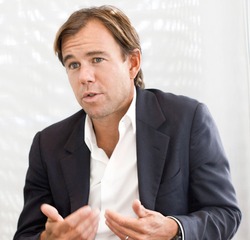Entrepreneurs and corporate leaders of small and large businesses from Sweden, Germany and Great Britain have spoken. Their message to the member states and EU officials is clear: we either reform or we are condemned to an economic downfall.
Among the signatories of the appeal, which was published in November in the Swedish, German and British media, are such names as August Oetker, executive director of a well-known German food processing company Dr. Oetker, Karl-Johan Persson, CEO and director of the swedish fashion company H&M, or Douglas Flint, president of HSBC, one of the largest banking and financial services institutions in the world. But hundreds of unknown small entrepreneurs, who together employ hundreds of thousands of people, also signed this appeal. Many of them have never been involved in matters such as these until now. They have been fully engaged in their respective businesses, and have never publicly spoken before. So what forced them to speak now?
It was the gravity of our current situation. Until recently, Europe was experiencing decades of an economic boom and political success in form of an integrating union. However, the times have radically changed. Economic boom has been replaced by stagnation and the Eurozone crisis. In the last decade, the EU’s share in world trade fell by a quarter, more than 5 million young people are unemployed, and an abyss of distrust is opening between the voters and the voted.
Europe is standing at an essential crossroads. The key challenge here is stopping the decline of international competitiveness. To achieve this, the EU must fundamentally change the method of its operation. How? The appeal identifies a number of key requirements. EU should recognize the internal market and free trade as cornerstones of prosperity. It should regulate less and work on cutting red tape. It should spend less on the past. It should be more transparent and maintain the strong role of national parliaments. And it should not intervene in areas that are better or equally well managed by the member states or their regional structures. One of the signatories made it perfectly clear: „We must redefine the key role of EU. Instead of an ever closer political union, the EU must have a new, simple and clear objective: free trade – movement of goods, services, capital and labor without unnecessary barriers.“ So the business representatives have spoken. Will the politicians finally listen?
Translated: Jakub Jablonický




















No comments
Be the first one to leave a comment.